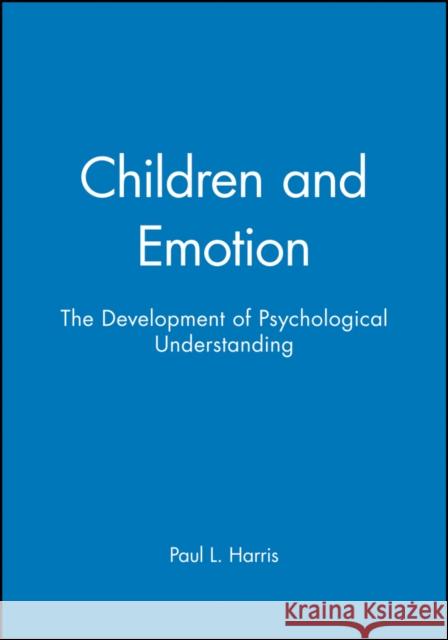Children and Emotion: The Development of Psychological Understanding » książka
topmenu
Children and Emotion: The Development of Psychological Understanding
ISBN-13: 9780631167532 / Angielski / Miękka / 1991 / 256 str.
This book will be of interest to psychologists, educators and philosophers. It highlights the child's increasing insight into the complexity and subtlety of our mental life.











